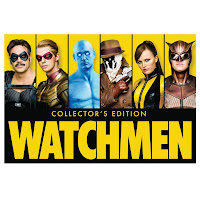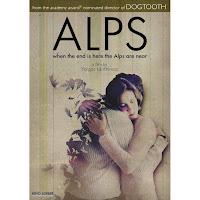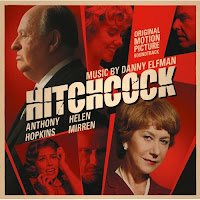the traveler's resource guide to festivals & films
a FestivalTravelNetwork.com site
part of Insider Media llc.
Reviews
December in NYC: Holiday Music (and more) at Carnegie, Guggenheim, Met Museum
- Details
- Parent Category: Film and the Arts
- Category: Reviews
- Published on Friday, 14 December 2012 10:00
- Written by Kevin Filipski
Rotunda Holiday Concert
December '12 Digital Week II
- Details
- Parent Category: Film and the Arts
- Category: Reviews
- Published on Sunday, 09 December 2012 05:00
- Written by Kevin Filipski
NYC Theater Roundup: 'Dead Accounts,' 'Anarchist' on Bway; 'Good Mother,' 'Civil War' off-Bway
- Details
- Parent Category: Film and the Arts
- Category: Reviews
- Published on Thursday, 06 December 2012 10:00
- Written by Kevin Filipski
The Anarchist
 |
| Butz and Holmes in Dead Accounts (photo: Joan Marcus) |
When Katie Holmes signed on for Theresa Rebeck’s Dead Accounts, it was seen as a move by the former Mrs. Tom Cruise to return to the limelight on her own terms. She made a decent Broadway debut in 2008 in All My Sons; but here, playing Lorna, spinster sister of Jack, who returns to his boyhood home in Cincinnati while on the run from his wealthy wife, spiteful in-laws and federal investigators for his financial shenanigans, Holmes is little more than window dressing in a shrill comedy that thinks broadsides aimed at Midwesterners and Manhattanites are hilarious revelations at this late date.
Evaporating even faster is The Anarchist, David Mamet’s new two-hander that is closing on Broadway barely a week after opening, which may be a quick-disappearance record for the veteran playwright. Unfortunately, this 70-minute non-play—devoid of tension, depth and feeling, and wasting powerhouse actresses Patti Lupone and, in her belated Broadway debut, Debra Winger, struggling mightily to create characters out of thin air—fully deserves its fate.
Gretchen Mol never became the big-screen star some predicted in the late ‘90s in films like Rounders and Donnie Brasco. But she proved an able stage actress in Neil Labute’s The Shape of Things with Paul Rudd and Rachel Weisz, and singing and dancing in Chicago. However, in Francine Volpe’s thuddingly obvious thriller The Good Mother, even the resourceful Mol as Larissa, a single mother of an autistic four-year-old daughter who may have been abused by Angus, a gay, goth, teen babysitter, can’t overcome pedestrian writing.
With Steven Spielberg’s Lincoln the serious movie of the moment, it’s unsurprising that Abe would also center a stage play. But the ungainly hybrid A Civil War Christmas by Paula Vogel—Pulitzer Prize winner for How I Learned to Drive—not only has Abe but holiday and period songs and sentimental story threads more appropriate for a Lifetime Channel movie than this sketchy effort by Vogel and her inventive director Tina Landau.
Music Box Theatre, 249 West 45thStreet, New York, NY
Golden Theatre, 252 West 45thStreet, New York, NY
The New Group, 410 West 42ndStreet, New York, NY
New York Theater Workshop, 79 East 4thStreet, New York, NY
DVD Review: My Time in the Thick Brick Cult
- Details
- Parent Category: Film and the Arts
- Category: Reviews
- Published on Thursday, 06 December 2012 05:00
- Written by Renzo Adler
 A mention of Troma Entertainment elicits one of two reactions: quizzical looks, or rampant enthusiasm. Troma is best known as the house that gave birth to The Toxic Avenger, a gory and raunchy series of films that filled video stores, and for a brief period in the early 90’s was also a poorly conceived children’s cartoon. Troma is also where I used to work.
A mention of Troma Entertainment elicits one of two reactions: quizzical looks, or rampant enthusiasm. Troma is best known as the house that gave birth to The Toxic Avenger, a gory and raunchy series of films that filled video stores, and for a brief period in the early 90’s was also a poorly conceived children’s cartoon. Troma is also where I used to work.
When I started out there as a wee intern, I was approached by Justin Martell and Travis Campbell to help out on a movie. Not the new Toxie, or a sequel to Surf Nazis Must Die, but something called Mr. Bricks: A Heavy Metal Murder Musical. Oh yeah, and they also had to make the movie on the side while juggling a full time job (more on that later).
Mr. Bricks as a film really doesn’t fit in with the majority of low/no budget shock flicks you see these days. No slasher clichés drenched with winks and nods to validate their inadequacies. No nouveau-gothic abandoned hospitals or asylums. Just stark, barren, industrial grey Queens and Long Island City provide the backdrop of this sordid tale.
Eugene 'Mr. Bricks' Hicks (Tim Dax) tries to re-call the events of a previous night after he wakes up in a hovel with a woman’s shoe in his hands, a bullet lodged in his head, and two men trying to dispose of him. He crosses paths with Officer Dukes (Vito Trigo) and Officer Scarlett Morretti (kinda-scream queen Nicola Fiore) as he spirals further down searching for the truth.
Bricks is played by tattooed muscle man, dancer, and fixture of many music videos, Tim Dax.
If I had to describe Dax’s performance in a single word, it would be “enthusiastic.” Dax doesn’t just brood or stand and look tough, he jumps, he swaggers, he screams, he cries, he’s all over the place! Dax’s flare is a little comic-booky, but it keeps the character interesting.
Mr. Bricks is a difficult film to categorize. Simply calling it a musical would be gross over-simplification, while calling it a horror flick doesn’t fit either since the horror is more about inner turmoil rather than dead bodies (don’t get me wrong though, there are still plenty of dead bodies in this movie).
The songs, while not exactly created by Meatloaf maestro Jim Steinman, are a melodic version of metal with some clearly enunciated lyrics so you can actually get an impression of what the characters are singing about. The lyrics are what you would expect in metal fare, but there is enough humor and flare in them to keep them interesting. Besides, who can’t agree that “love is murder”?
You could call it an exploitation film, but thankfully, Mr. Bricks doesn’t indulge in obnoxious faux-1980’s flares that you see in movies that use the moniker “exploitation” these days. And while Mr. Bricks is not the most polished film you will see, it is a truly earnest effort by filmmakers that embodies Troma’s history of films that defy categorization.
The earnestness of this production can be seen in the making of documentary on the DVD, Brick By Brick, where we see how Travis Campbell (Writer and Director) and Justin Martell (Producer) created this film with a shoe-string budget while also working full time jobs at Troma, drenching the production in espionage. I’m also in Brick by Brick, since I was working at Troma when Bricks was being made, so I won’t lie when I say there is a personal tie that I have with this film and the tortures and triumphs the people working on it went through.
At the end of the day, Mr. Bricks is simply a film unlike any other. It might be a little rough around the edges, but it bravely traverses territory few have done before by making a gritty musical.
Mr. Bricks A Heavy Metal Murder Musical is out on DVD December 11, 2012.
More Articles...
Newsletter Sign Up


























